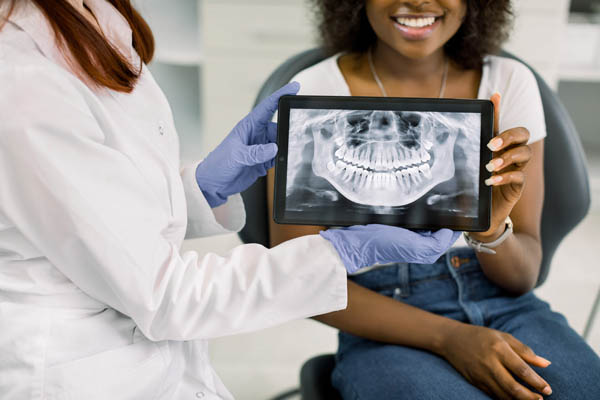Fixed Dentistry for Dental Restoration – Dental Bridges

A bridge is a custom-made fixed dentistry restoration to fill the gap left by one or more missing teeth. The bridge restores dental function and helps preserve the appearance of your face. The dentist will recommend a suitable type of dental bridge based on the specific needs of the patient. This article covers what you need to know about the process.
Prosthodontics: Who needs a dental bridge?
Losing a tooth can be devastating. Teeth are designed to function together. When a tooth is missing, the teeth near the gap can shift or tilt into the gap. The teeth in the opposite jaw may also move awkwardly into the gap when biting or chewing. This can put undue stress on the jaw joint and teeth, potentially causing discomfort and damage.
It is harder to clean shifted or crooked teeth, placing them at higher risk of tooth decay and gum disease. Once a tooth is lost on the jaw, the jawbone may start to shrink without proper stimulation. If this occurs, it may alter the facial structure and make the person look older.
Placing a fixed bridge
A dental bridge in fixed dentistry allows the dentist to use the existing natural teeth on the two sides of the gap to hold the new tooth in place. Fitting a patient with a bridge typically takes more than one dental appointment.
During the first appointment, the dentist will prepare the teeth on both sides of the missing tooth. The bridge will get support from these teeth. Impressions or digital images of the teeth and gap will be taken. The information will be sent to a dental laboratory where the technicians will use that to produce the dental bridge. The bridge can be produced from metal, ceramics or a combination of both materials. The dentist will discuss the most suitable option during the appointment.
While waiting for the completion of the final bridge, the dentist will fit the patient with a temporary bridge to protect the prepared teeth. When the permanent bridge is ready, the patient will return for a second appointment. The dentist will fit and adjust the bridge as necessary before cementing the bridge permanently. The bridge is fixed and can only be taken out by a dental professional.
Caring for the dental bridge
The dental bridge may fail if the supporting teeth or jawbone get infected by dental disease. Patients need to take oral hygiene routines seriously to maintain good oral health. Tips for caring for bridges include:
- Brush the teeth twice daily and clean between the teeth with floss; brushing and flossing help clean plaque (a sticky bacterial film) from the surface and between the teeth
- Clean under the bridge; there are dental tools to make the process easy, and patients can ask their dentist for recommendations
- Visit the dentist regularly for dental exams and professional teeth cleaning
- Consume a healthy diet, and reduce intake of sticky and sugary treats
Final note
Dental bridges are indirect restorations in fixed dentistry and are designed to be permanent replacements for missing teeth. If you have a missing tooth, talk to the general dentist to discuss your options.
Get more information here: https://www.arcdentistry.com or call Arc Advanced Dentistry & Cosmetics at (516) 301-9038
Check out what others are saying about our services on Yelp: Read our Yelp reviews.
Recent Posts
Metal braces have long been the expected option for correcting misaligned teeth, but the introduction of Invisalign® treatments has many dental patients rethinking the choice. There are many reasons to choose a clear aligner system over metal wires and brackets to achieve a uniform smile and straighter teeth, but the decision is ultimately up to…
Dental bonding is a minimally invasive way to enhance or repair the smile. Whether the issue is staining or a minor crack, bonding can be a quick and effective way to address it. Learning more about this common dental service can help you determine whether it is the best option for restoring your smile. Dental bonding…
A dental crown is a long-lasting dental restoration that helps restore the strength, appearance, and function of a severely damaged tooth. While these restorations are strong, proper dental crown care ensures their durability and prevents potential complications. The following guidelines can help you preserve your newly restored tooth and maintain your long-term oral health.A dental…
Spacers are often needed in orthodontics to help enhance the entire treatment process. A lot of people have a need for spacers to ensure that their orthodontic treatment goes to plan. This addition to braces or aligners may be recommended by a general dentist. This article outlines what spacers are, how they work, and when…


